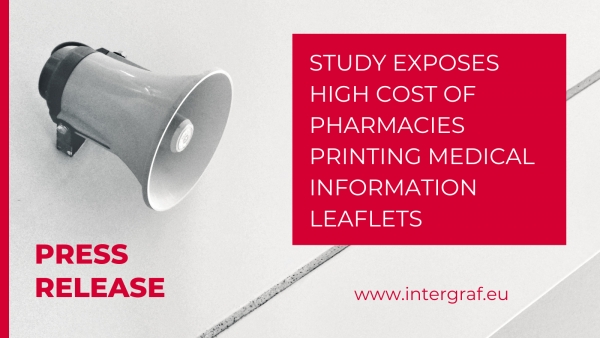26 March 2019

ESFA business update - key points to consider when taking on an apprentice
The ESFA (Education and Skills Funding Agency) has issued their latest business update which contains business critical information relevant to any employer who has or is thinking about taking on an apprentice. Karly Lattimore, MD BPIF Training pulls out the key points to consider below.
1. Apprenticeship service update
Considering making a transfer? Advice for employers sending or receiving a transfer of apprenticeship funds
Are you a levy-paying employer who is considering making a transfer? If so, then you need to be aware that any employers who are receiving funds will also need to have an account on the apprenticeship service.
ESFA have some useful tips to help employers set up an apprenticeship service account.
Each account on the apprenticeship service must include at least one:
• account owner
• organisation
• PAYE scheme
To register a new account on the apprenticeship service the receiving employer will need:
• the account owner’s email address
• the organisation’s Companies House number, charity number, or public sector body name
• the PAYE scheme’s Government Gateway credentials
If the receiving employer cannot find their Government Gateway credentials they should contact the HMRC helpdesk on 0300 200 3200.
For further support on this and other topics, please view ESFAs blog or guidance video.
Public bodies can complete their apprenticeship report from 1 April
Public bodies will be able to complete the public sector apprenticeship report on the apprenticeship service from 1 April.
All public bodies in England with more than 250 employees must report on the apprenticeship target. This target is to employ at least 2.3% of the workforce as new apprenticeship starts for the period 1 April 2017 and 31 March 2021. It is assessed as an annual average over this four-year period, and progress is reported annually.
Reports are submitted using the public sector apprenticeship reporting tool which can be found within the organisation’s manage apprenticeships account.
Certain public bodies are exempt from submitting a report, such as the BBC, Channel 4 and the Post Office. For more information or guidance on how to complete your public sector apprenticeships report search for public sector apprenticeship target on GOV.UK or watch ESFAs guidance video.
Funding projection tool – expiry of funds release
The apprenticeship service has introduced a further development to the Funding Projection Tool, which employers can access in the finance section of their apprenticeship service account. From May 2019 onwards, levy-paying employers are able to see the projected estimate of monthly funds due to expire over the next four-year period.
For more information employers can read the apprenticeship technical funding guide or the content available on the funding projection tool page of their account.
2. Apprenticeship funding policy update
Funding policy updates from 1 April 2019
Employers who do not pay the levy or who want to invest more in apprenticeship training than is available in their digital account, need to make a financial contribution, a ‘co-investment’, towards the cost of training and assessment of apprentices, with government funding the remainder.
From 1 April 2019, this government funding will cover 95% of the maximum funding band rate for all new apprenticeship starts. Employers will pay the remaining 5% co-investment payment direct to the training provider.
Where the negotiated price for the apprenticeship exceeds the funding band, the employer is responsible for paying the amount above the funding band maximum, direct to the training provider.
For further details about apprenticeship funding are available on GOV.UK and in the employer guide to apprenticeships.
3. Public sector target reporting “research brief” now published
The research brief summarises responses from public sector bodies to the apprenticeship target and future plans for delivery. It details successes and challenges the public sector have faced in the first year of the public sector target.
Research shows that many public bodies that reported in the first year undertook activities to support the recruitment of more apprentices in the future public sector research brief.
4. NUS apprentice extra card
The NUS Apprentice extra card is a discount card dedicated to apprentices. NUS Apprentice extra provides discounts in-store and online and 1000s are already saving an average of £13.50 per month on everything from food and fashion to travel and tech.
If your apprentices are interested in the card, please tell them about NUS Apprentice Extra.
5. The National Society of Apprentices
The National Society of Apprentices (NSoA) works with more than 120 training providers and employers, representing over 150,000 apprentices across the UK as the national voice of apprentices.
The society was set up to support apprentices, to champion their rights, to represent apprentices’ views on a national level, and celebrate the part that they play in their communities. Membership of the society is free to training providers, colleges and employers.
Contains public sector information licensed under the Open Government Licence v3.0.
 Intergraf Economic News (Paper Prices) - March 2024
Intergraf Economic News (Paper Prices) - March 2024
18 March 2024
Access the latest edition of the Economic Newsletter for the European Printing Industry for data on paper consumption, and pricing data for pulp, paper and recovered paper. Data for packaging papers and board is also available with this edition.
 STUDY EXPOSES HIGH COST OF PHARMACIES PRINTING MEDICAL INFORMATION LEAFLETS
STUDY EXPOSES HIGH COST OF PHARMACIES PRINTING MEDICAL INFORMATION LEAFLETS
7 March 2024
Intergraf welcomes the release of a study by our partner MLPS (Medical Leaflet = Patient Safety), a subgroup of the European Carton Manufacturers Association (ECMA) shedding light on the potential economic costs associated with the proposed use of Print on Demand (PoD) leaflets in the pharmaceutical legislation revision.

The BPIF is the printing industries champion. By becoming a member you join a diverse and influential community. We help you solve business problems, connect you to new customers and suppliers and make your voice heard in government.
Call 01676 526030









